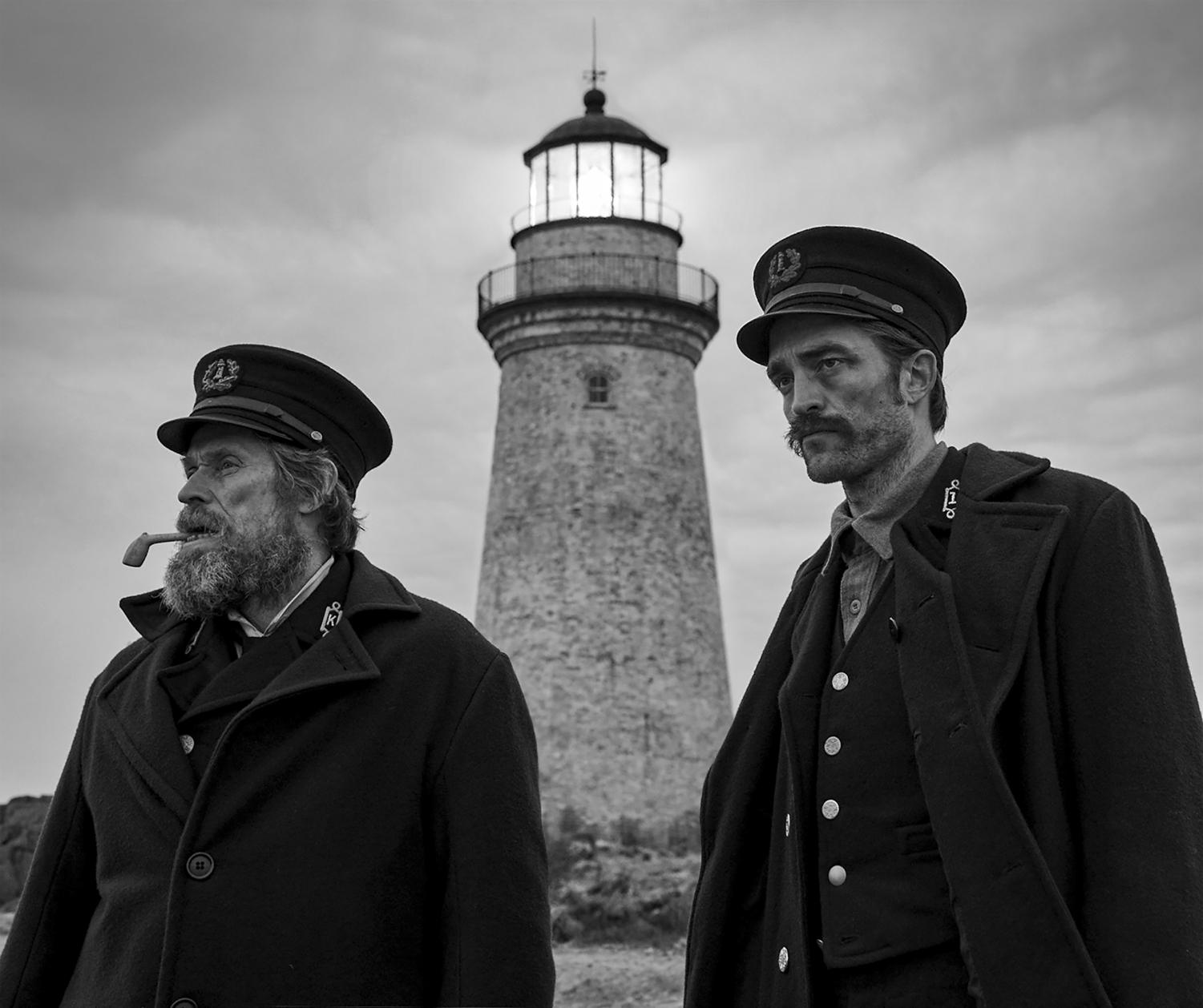Review: ‘The Lighthouse,’ a shining example of mental manipulation
October 31, 2019

Nature meets hallucination-born madness in Robert Eggers’ 2019 black and white film, “The Lighthouse.” This 110-minute mental trip is an uneasy cocktail of the water, the gales and the cooped up delusion of two seamen trying to fight off whatever fate has in store for them.
Much like a dinghy set on the roaring waters, the plot of this story dips and rides a multitude of theatrical waves, none of which the audience will see coming.
To acutely assess the elements of this film and its nakedly bizarre nature, the audience must first look at the characters and the Hollywood regulars who brought them to life. Willem Dafoe plays Thomas Wake, the guardian of the lighthouse, and Robert Pattinson, as Ephraim Winslow, plays the newly hired assistant to Wake.
The stroke of a good actor is not one who merely evolves the story, but follows you home from the theater after the end credits. Dafoe’s character, especially, is one that has abandoned outward reasoning for the sake of his own narrative, and for that the audience thanks him. Dafoe’s full submission and devotion to his character is only comparable to his character’s devotion to his own version of truth.
Through his passion for misdirection and misinformation, Wake’s commitment to the idea of who he is and what he has experienced is remarkable. Convincing himself of his past life, he stops at nothing to convince Winslow of the same.
This, however, can only exist because Eggers set the parameters for it. A limited setting and limited characters with limited choices sections off the narrative to only feed off the possibility of the imagined. Therein lies the crux of the climax of the film: gaslighting.
Never in my life did I imagine I would be watching Willem Dafoe gaslight Robert Pattinson to the extent of madness on the silver screen. But I, and a room full of other restless popcorn eaters, saw it play out before our eyes.
What makes this psychological thriller stand out from the rest, is this time we did not see it coming. The classic questioning of the real versus imagined, the berating, the influence of wise man over young buck, is all so palpably present in the latter portion of the film that the viewer is left nearly blindsided.
Without explanation, Wake grips the film’s narrative with saltwater pruned hands and drives it to insanity and beyond—so much so that the viewers themselves might want to hit rewind or ask, “Did that really happen?”
There is no storyline imaginable that can make up for lazy characters and lazy acting. Dafoe and Pattinson are far from representative of those characteristics, making them successful in this career feat.
As for Eggers, the Oscar buzz that surrounds his third film is more than worthy. His stylistic control and lack of reservation earns him a seat with some of the greatest names in Hollywood. The film asks for more from its audience than a cheap scare or even a chuckle at the mention of a fart—as is referenced numerous times among the two lighthouse keepers—but it asks its participants to observe something and understand the weight of what it means to be a witness to isolation.
See the film, bring a friend and remember, seagulls are a lot more powerful than man.







